 South Carolina : Safety by City
South Carolina : Safety by City
- Aiken
- Beaufort
- Charleston
- Clemson
- Columbia
- Folly Beach
- Fort Mill
- Gaffney
- Greenville
- Hilton Head Island
- Isle of Palms
- Manning
- Mauldin
- Mount Pleasant
- Myrtle Beach
- North Augusta
- Orangeburg
- Pawleys Island
- Rock Hill
- Spartanburg
- St. Helena Island
- Sullivan’s Island
- Summerville
- Travelers Rest
- Walterboro
- West Columbia
If you had to pick just one city that sums up everything there is about Southern charm, it might just be Charleston, South Carolina.
Known as the “Holy City” for its religious presence, steeples dot the skyline in every direction.
This city is rich in history and culture while still being a beach getaway destination.
The film history here spans from the romantic favorite The Notebook to the 2018 remix of the horror movie Halloween.
Charleston also has deep roots in the slave trade that led to the Civil War, and the city officially denounced this activity in 2018.
City leaders are making strides towards racial equality and inclusion for everyone.
However, you will still come across some locations that might be triggering or upsetting when you learn their history.
Several exhibits here can educate you about the slavery of the past and celebrate the influential African Americans throughout Charleston’s storied history.
Tours here run the gamut from carriage-drawn experiences to walking tours rated among the best in America to haunted tours through cemeteries and derelict jails.
You can also take a tour through the harbor on a boat.
The tour options even go as specific as a horse-drawn haunted carriage tour.
Nearby Fort Sumter and Fort Moultrie National Historic Parks are open for tours as well while getting you closer to the sea.
The variety of Charleston is what makes it so attractive to tourists.
You never know when you’ll bump into famed actor Bill Murray or an alligator.
Warnings & Dangers in Charleston

OVERALL RISK: MEDIUM
There's a medium risk due to crime levels, weather risks, and national headlines involving a church shooting and protests turning violent. On the surface, it seems almost too "pretty" to have risks, but there's an underbelly to explore. Once you know the risks, you'll be able to explore in a safer headspace.

TRANSPORT & TAXIS RISK: LOW
CARTA is the public bus system with a DASH route that takes people around downtown for free. Shuttles are available for rent to and from the airport, plus you can get a taxi or rideshare easily. When you're downtown, you really don't need any of the options other than DASH, as it's a very walkable town.

PICKPOCKETS RISK: LOW
There's a low risk, but the average pickpocket or purse snatching numbers are around 15-20. Be especially cognizant of your belongings during big weekends or large crowds. Don't leave your stuff lying on the ground, even for a short time.

NATURAL DISASTERS RISK: MEDIUM
There's a medium risk here, with flooding being a major problem due to the low sea level (they don't call it "Lowcountry" for nothing!) Hurricanes are a risk from June through October, but the season really heats up starting in August. Severe thunderstorms and tornadoes are possible too.

MUGGING RISK: LOW
About 25% of all robberies here happen in public places. The robbery rate is lower than it has been in the past two years. There's a low risk but a rising number of violent crimes. If you are unlucky enough to face a robber, don't fight back.

TERRORISM RISK: MEDIUM
The military presence of Joint Base Charleston and the busy port gives Charleston a medium risk, but it also comes with extra security from the military and Homeland Security.

SCAMS RISK: MEDIUM
There's a medium risk of travel scams here, mainly on fake rental listings. Don't use Craigslist or shady third-party sites just to get a deal. Warning signs include being asked to wire money and a landlord who would only communicate via email. Use a local real estate company to find a legit listing. Also, if you want to buy a sweetgrass basket, cross over to Mount Pleasant to find a better deal. The ones for sale in Charleston get a not-so-sweet markup.

WOMEN TRAVELERS RISK: LOW
Women actually have slightly less risk of being a victim of violent crime when looking at the 2020 crime data. However, there are a lot of places to have fun here, so always enjoy the nightlife with a friend or with a known group of people. Don't walk around alone at night and avoid dark alleys.

TAP WATER RISK: LOW
Charleston Water does 20,000 tests yearly to check water quality, and the 2021 Water Quality Report shows full compliance with EPA standards. Be sure to follow the city on social media, as flooding and stormwater runoff can impact water quality for brief periods of time.
Safest Places to Visit in Charleston
Charlestoncvb.com is the official tourism site for the Charleston area.
Just visit a tourism center that is associated with this group.
Otherwise, you could face some ticket scams.
The city is rich with activities and tours, as we discussed, so let’s go through the different neighborhoods first.
Downtown Charleston:
The tourism epicenter of the community.
Shopping, dining, history, tours, and adventures mostly start here.
Old Village:
Streets are lined with historical homes and buildings right on the harbor.
You’ll want to stop for stunning Instagram pictures of this area, including boats and birds in the background.
Avondale:
Across the river from Downtown Charleston and connects with West Ashley.
This is a vibrant city section with shops, dining, and restaurants while still being close enough to the water to hear the seagulls.
Cannonborough:
Historic district with a trendy side.
Home to Southern hospitality and a great place to “visit like a local.”
Nexton:
Close to the airport and away from the tourist crowds, this neighborhood is also close to some outdoor activities, like Cypress Gardens and Old Santee State Park.
Park Circle:
A local neighborhood with everything from disc golf to safe strolls on historic streets to sipping sweet tea at a sidewalk cafe.
Sullivan’s Center Street:
Pack for a beach day while still having access to modern amenities.
Take a trip to see one of the nearby historic forts from here.
There are five beaches near Charleston, and while many people head right for Folly Beach, others are worth considering.
Review each one at Charlestoncvb.com.
- Seabrook Island
- Kiawah Island
- Sullivan’s Island
- Isle of Palms
Families will love to take the kids to the Children’s Museum of the Lowcountry.
This interactive exhibit also brings Charleston’s spirit with a pirate ship and medieval castle to explore.
It’s overwhelming to choose from all the museums and tours available, so visiting the Charleston Museum Mile might be a great way to get into many museums while staying in one area.
The H.L. Hunley is a combat submarine once lost at sea and is now open for tours in Charleston.
It’s only open on weekends, so be sure to plan around that.
Places to Avoid in Charleston
North of Calhoun Street and along the I-26 corridor have the highest crime rates, according to crime distribution maps.
The west side of the Ashley River has some of the lowest crime rates in the area.
Avoid visiting Charleston if there is a hurricane heading that way.
Up to five days out, stores can start closing, and evacuations can happen, so trying to “squeeze in the trip” isn’t going to be as fun.
While a hurricane isn’t going to sneak up on you here, tropical storms in the Atlantic can take sudden turns or even stall out over a region.
Be sure to follow the National Hurricane Center when visiting any hurricane-prone area between June and October.
Charleston has various haunted tours, which, of course, take place after dark.
If you are going on one of these tours, stay with the group and don’t walk alone after the tour is complete.
Ask the guide to stay with you until you can get a ride back or someone to walk with you.
Safety Tips for Traveling to Charleston
- Charleston has a 2021 Annual Report that details crime trends, safety programs, and traffic challenges. This is a great way to familiarize yourself with the city as it moves past the pandemic slowdown.
- The city also has a Racial Bias Audit on the police department’s website, where you can review the strategic plan and up-to-date data on inclusion, diversity, and fair treatment for all.
- The locals in Charleston are very friendly by nature. They’ll wave at you or start a conversation. This can be unnerving since one of the scam warnings is to avoid people who seem too friendly. Be nice but on guard when having conversations. It’s best not to bring valuables with you anyway, so you’ll have less to protect.
- The city street names aren’t always pronounced how they look. This can make it hard for a tourist to ask for directions. Study the street names and pronunciations ahead of time. It will help you get around better but also not make you stand out as a tourist if there’s a thief looking for a crime of opportunity.
- If you spot a freshwater lake, pond, or river, there’s a good chance there is an alligator in it. Don’t walk close to the water. If you see an alligator, just stay away from it. Rarely will they chase someone down. They want to be left alone but will defend their habitat. Since 2000, 17 people in South Carolina have been victims of alligator attacks, and one of the four deaths was in Charleston County.
- The city of Charleston has a Notify Me section on its website where you can pick and choose alerts you’d like to get. You must get the weather, water quality, street closure, and other alerts that can impact your travel, but you won’t need the city council agendas and such.
- If you are visiting after a hurricane hits, be sure to check the city and county social media sites. It can take weeks for power and water to be restored. Damaged buildings could take months to clean up or tear down. Don’t assume just because the storm passed that it’s safe to visit.
- Parking is at a premium in downtown Charleston, but there is free parking if you’re willing to walk several blocks. A SmartCard is available for those who don’t want to carry coins for the meters. You can purchase one at the municipal building downtown.
- There is a citizen’s service desk available by calling (843) 724-7311. This will allow you to ask any questions about the city or report issues like potholes. You can also pay for a parking ticket through that hotline.
- Non-residents need a fishing license from the South Carolina Department of Natural Resources. You can purchase them online. A 14-day permit will cost you $11.
So... How Safe Is Charleston Really?
Charleston has seen its fair share of negative headlines, from a racially-motivated church shooting to violent protests.
In 2021, the crime rate was pretty much average from 2020, with a few ups and downs, but nothing that changes the criminal landscape.
There’s an effort by the police department to improve the Central Business District along King Street, which saw a lot of crime as the city re-opened after the pandemic shutdowns.
Street traffic was changed, pedestrian and drop-off rules were adjusted, and now the area is safer than it was before.
In 2020, 23% of violent crimes were against strangers, while 46% of violent crimes happened in homes.
A large chunk of the higher theft rate comes from car break-ins, which accounted for 45% of all thefts.
You have to lock up your car and roll up the windows, whether you’re in a parking garage or at the beach.
Charleston is a great city to visit, but it does have more than its fair share of crime.
Stay in the tourist areas and talk with the concierge at your hotel about local crime trends during your visit.
It’s not too dangerous to visit here, but you shouldn’t go into it with false expectations of safety.
How Does Charleston Compare?
| City | Safety Index |
|---|---|
| Charleston | 70 |
| Deadwood | 80 |
| Sturgis | 80 |
| Pierre | 81 |
| Spearfish | 80 |
| Hill City | 83 |
| Sevierville | 73 |
| Temuco (Chile) | 31 |
| Puno (Peru) | 45 |
| Nara (Japan) | 88 |
| Kanazawa (Japan) | 83 |
| Hammamet (Tunisia) | 78 |
| Sidi Bou Said (Tunisia) | 42 |
Useful Information

Visas
A U.S. Travel or Work Visa will cost $160 - $190. You should start the planning process early and follow all steps to make sure you don't get delayed in the process. Without a passport and visa, you can't enter the United States.

Currency
You can only use the U.S. Dollar here and don't carry much of that currency with you. Credit cards and mobile payment apps are widely accepted. The parking meters do require coins, so if you aren't getting a SmartCard, don't get caught without spare change.

Weather
The weather here is generally mild to warm, and it's a very casual town. Good walking shoes are essential because the city was designed to be walked, and those long beach strolls are going to take a toll as well. Bring sunscreen and bug spray. You'll likely need a rain jacket, so pack a waterproof shell.

Airports
Charleston International Airport is less than 30 minutes from downtown. It's the closest and best option for traveling domestically or internationally.

Travel Insurance
Travel insurance for all forms of transportation will help make this trip safe without having to pay the high price for accidents or incidentals. Make sure you know what type of hurricane reimbursement there is and what protection you have on boats, rental cars, and tours.
Charleston Weather Averages (Temperatures)
Average High/Low Temperature
| Temperature / Month | Jan | Feb | Mar | Apr | May | Jun | Jul | Aug | Sep | Oct | Nov | Dec |
|---|---|---|---|---|---|---|---|---|---|---|---|---|
| High °C |
14 | 16 | 19 | 23 | 26 | 30 | 31 | 31 | 28 | 24 | 20 | 16 |
| Low °C |
6 | 7 | 11 | 15 | 20 | 23 | 25 | 24 | 22 | 17 | 12 | 8 |
| High °F |
57 | 61 | 66 | 73 | 79 | 86 | 88 | 88 | 82 | 75 | 68 | 61 |
| Low °F |
43 | 45 | 52 | 59 | 68 | 73 | 77 | 75 | 72 | 63 | 54 | 46 |
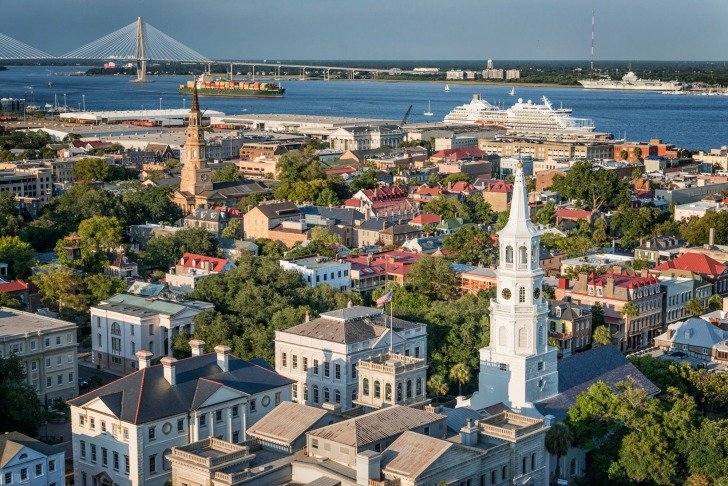

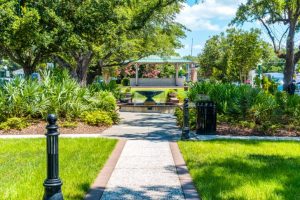
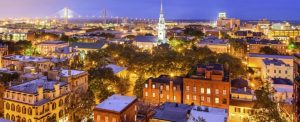
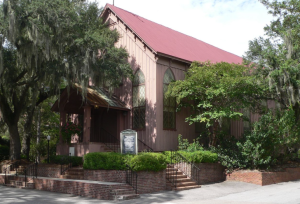
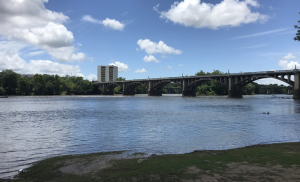
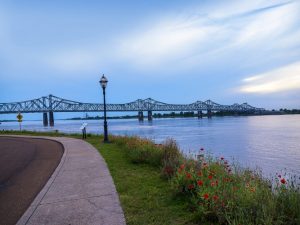





A decent place
I actually felt quite safe while in Charleston while visiting a friend. He told me about what was going on, the dangers that can be found here so I had a pretty good guide. I guess if you know the bad areas and avoid them you’ll be fine. Pickpocketing is a problem here as I’ve had a chance to see 2 such events happen to other people in crowded areas.
Plenty to see and it’s safe for tourists
Charleston is a nice place to visit. You can certainly have fun for a few days or even a week. I wouldn’t rule out terrorism anywhere, especially in the US but giving it a HIGH rating doesn’t seem like the case to me. The city is much safer than it was when the last attack happened. Their current problems are pickpockets which can be seen operating in crowded areas, thieves that try to distract you and steal your stuff or potential for muggings in certain areas. Like someone already mentioned, knowing these bad areas means you’re solving half the problem already.
If you have a friend or a guide, chances are you won’t run into any kind of problems. I didn’t. Here are just a few places I think you should consider visiting while you are here.
Magnolia Plantation & Gardens. I’m a sucker for magnolias so this was a must. Take the guided tour and visit everything here. There’s a boat tour I also highly recommend. There’s plenty to do and see.
Go to the old market building to buy souvenirs and watch basket weavers. The building is beautiful and well worth a visit.
Go on a boat ride to the Fort Sumter National Monument which is an important piece of history from the American Civil War.
Must see! Patriots Point where you will find the USS Yorktown. You will love this huge aircraft carrier which served in World War II and Vietnam. I, for one, always wanted to see one up close and I realized that dream while here.
Whether alone, with a friend or with family visit the South Carolina Aquarium. This place has so many marine animals that you can make a day out of it. You’ll also find a sea turtle hospital here – yes, that’s a thing.
So plenty to see (much more than I’ve mentioned) and the place is safe.
Definitely safe!
It is a charming and historically rich city that I’ve always felt safe exploring. The welcoming atmosphere and friendly locals make it an inviting destination for travelers.
Well-maintained area
During my visits to Charleston, I’ve found the city to be well-maintained and with a strong police presence, which contributes to a sense of security. It’s definitely a place where you can enjoy your trip worry-free.
Perfect for evening strolls
I appreciate how well-lit and pedestrian-friendly many areas of Charleston are. It’s perfect for evening strolls along the historic streets, and I’ve always felt safe doing so.
Best place
It has a low crime rate compared to other cities, which is reassuring for travelers. I’ve never encountered any issues with personal safety when I visited there.
Helpful community
The local community is known for its hospitality and willingness to help tourists like me when I visited there, they always take me to the right place and the hidden gems of the city.
Charleston has always been one of my favorite places to explore, and I’m glad to see the crime rate hasn’t overshadowed the city’s charm. It’s all about being alert and knowing where you are.
Charleston is a beautiful city with so much history, but like anywhere, it has its safer and sketchier spots. The report is a good reminder to stay aware, especially downtown late at night.
My daughter just started college in Charleston, so safety is a big concern for me. Glad to see detailed info broken down by area, and it helps us both feel more prepared.
I’ve been thinking about moving to Charleston, so this report is really helpful. Sounds like it’s mostly safe but smart to research neighborhoods before deciding where to live.
I visit Charleston every year and have always felt safe, especially in the historic district and tourist areas. That said, I usually avoid wandering too far off the beaten path after dark.